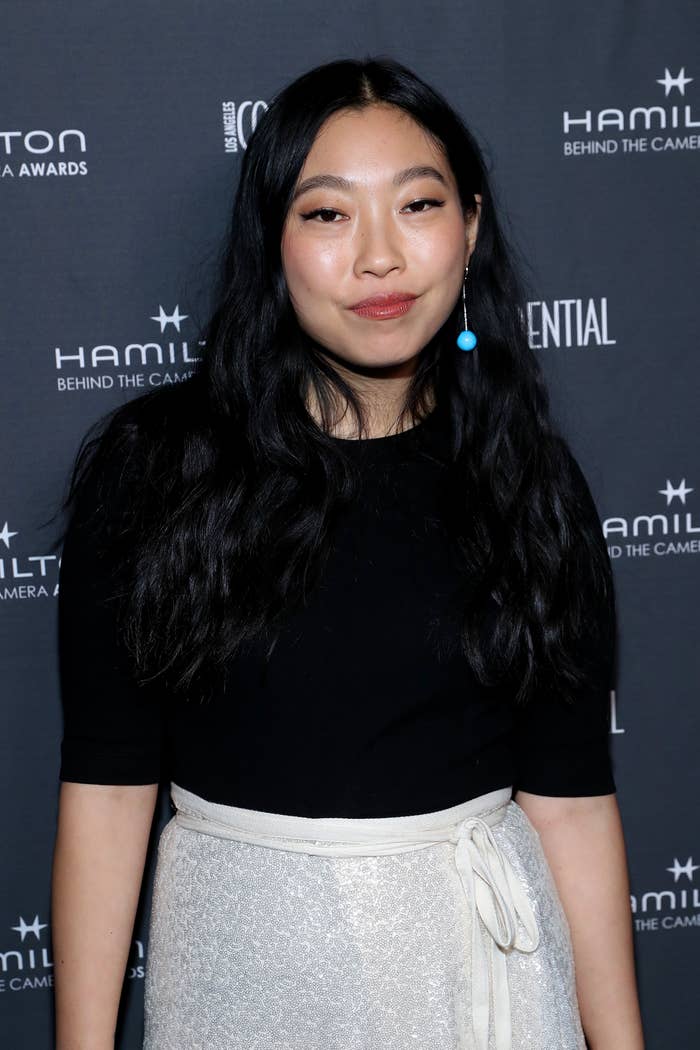
After years of pushback about her appropriation of African American Vernacular English (AAVE) and using a “blaccent,” Shang-Chi star Nora Lum, popularly known as Awkwafina, finally addressed the criticisms in a Twitter statement Saturday, saying, “[A]s a non-black POC, I stand by the fact that I will always listen and work tirelessly to understand the history and context of AAVE."
The Crazy Rich Asians actor began the statement by saying, “There is a sociopolitical context to everything, especially the historical context of the African American community in this country.”
She also said, "But I must emphasize: To mock, belittle, or to be unkind in any way possible at the expense of others is: Simply. Not. My. Nature. It never has, and it never was." Awkwafina later said she was quitting Twitter.
However, some activists felt that her statement was too little, too late, telling BuzzFeed News that Awkwafina’s past actions and the delay in addressing the yearslong criticisms reduced Black identity to a punchline, ultimately hurting young Black creatives in Hollywood.
“Putting on any marginalized person’s identity in comedy equates a person’s voice and culture to not being taken seriously,” Cheryl Bedford, the founder of Women of Color Unite — an organization fighting for fair access and treatment for women of color in Hollywood — told BuzzFeed News on Saturday. “It’s making fun of, and it upholds white supremacy by turning the voices of a community into a joke.”
Awkwafina’s statement came two weeks after a public outcry over her nomination for an NAACP Image Award, which historically has honored Black achievement and talent in Hollywood. She was recognized for Outstanding Character Voice-Over Performance, which upset many over her reluctance to apologize for and address criticism about her past appropriation of AAVE.
A few hours after she tweeted her statement, Awkwafina announced she was leaving Twitter for a few years, saying, “I apologize if I ever fell short, in anything I did.”
Well, I’ll see you in a few years, Twitter - per my therapist. To my fans, thank you for continuing to love and support someone who wishes they could be a better person for you. I apologize if I ever fell short, in anything I did. You’re in my heart always ❤️
Many were frustrated with her statement’s lack of an apology for years of appropriation, and some pointed to her addressing the controversy during Black History Month.
1. Not one word of this is an apology for making a mockery of Black people and Black culture. 2. What the hell is "immigrant acculturation"? 3. I need people to stop making these kinds of half-assed statements during Black History Month. 28 days ain't enough for this foolishness https://t.co/bA8ctMZlUT
anyways, in light of Awkwafina demonstrating yet again the wrong way to apologize, here's a couple suggestions for making better apologies that i find rly helpful and try to use as much as possible ✌️
awkwafina thought she gonna EAT releasing that wack ass statement during black history month like it was gonna have some kind of significance…. BITCH give me that plate.
Bedford said that Awkwafina’s statement was being scrutinized particularly because her appropriation of Black culture has been solely in the genre of comedy — a behavior Bedford felt is all too common in the entertainment industry.
“When she starred in a dramatic film, The Farewell, I noticed the Black vernacular she uses fell away completely,” Bedford told BuzzFeed News. “I don’t care how respectful someone thinks they’re trying to be. People are outraged because these actions, in this context, uphold white supremacy.”
Johnathan Gibbs, founder of the Black & Asian Alliance Network, told BuzzFeed News that there have been many conversations about Awkwafina and “her proximity to Blackness and how she has used some of the stereotypical images of Blackness to further her career.”
Gibbs responded to Awkwafina’s statement on Twitter, saying, “My initial response is, 'Why did it take so long to say this, especially when you knew the conversation on you existed?’”
After Gibbs tweeted that he had been blocked by Awkwafina following his response, he said that the actor DM’d him to explain that it was a fumble by her public relations team, who were trying to protect her, Gibbs told BuzzFeed News.
“She apologized if my feelings were hurt and asked me to understand what she goes through,” Gibbs said, referring to his DMs with Awkwafina. “I stated that I get it, and I let her know that there are folks out here still waiting for her to actually address the issue at hand.
“If she's willing to tweet about Black folks, knowing that Black folks have a bone to pick with her, her team shouldn't be shielding her,” Gibbs said. “She should have remained silent until she was ready to actually have the conversations. She has been silent all this time anyway.”
Since the beginning of her career, Awkwafina has faced criticism for her appropriation of Black culture, as she first entered the public eye via viral rap music videos on YouTube.
Bedford said that Awkwafina’s appropriations and use of “blaccent” had a more far-reaching impact that went beyond just the social media outcry.
“The result is always that young Black creatives in Hollywood who actually speak using AAVE are not taken seriously,” Bedford said. “It’s almost cheapening to the content they are trying to make, in their genuine voice. I mean, when someone uses their voice for comedic effect, what do we think that that does?”

